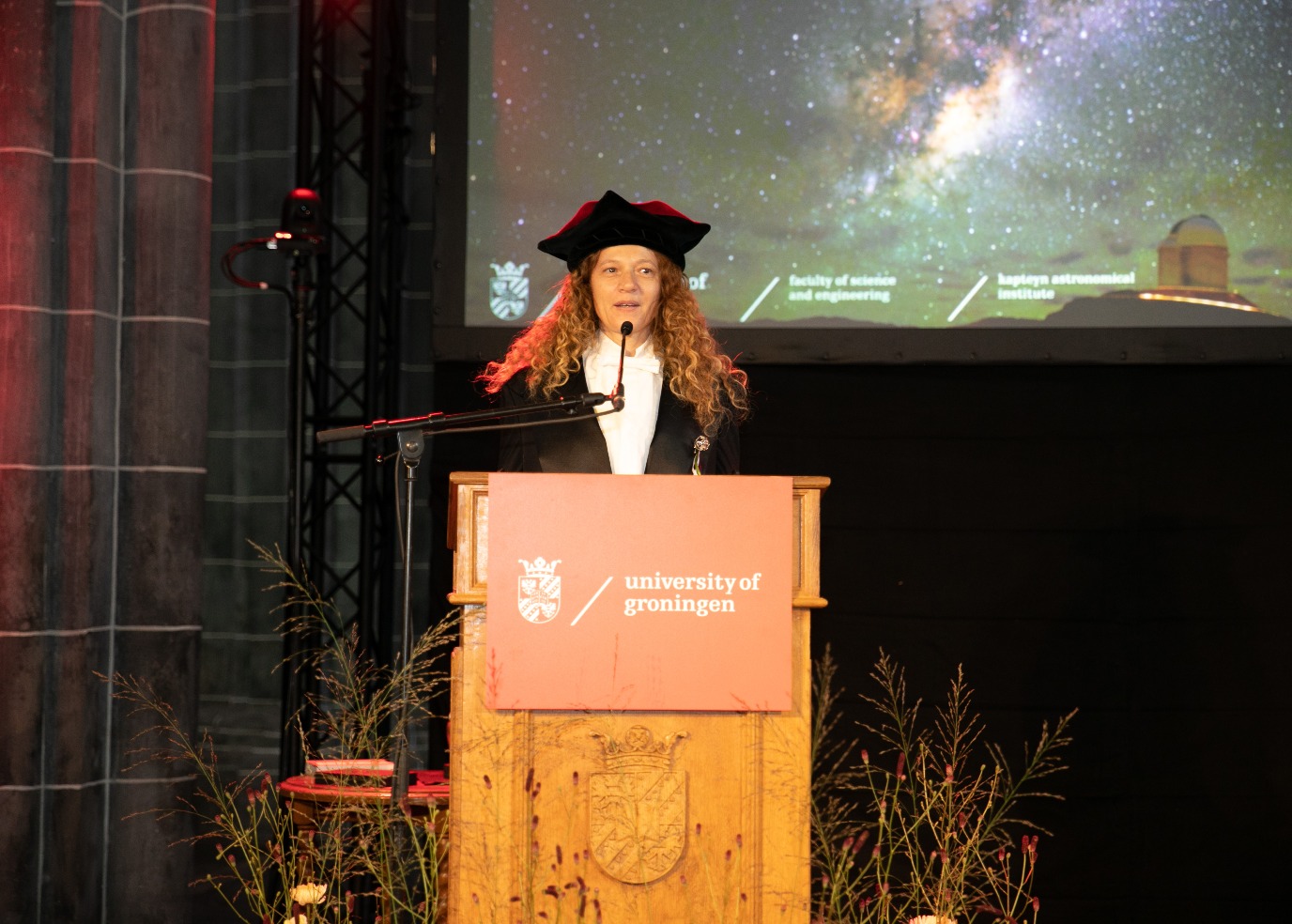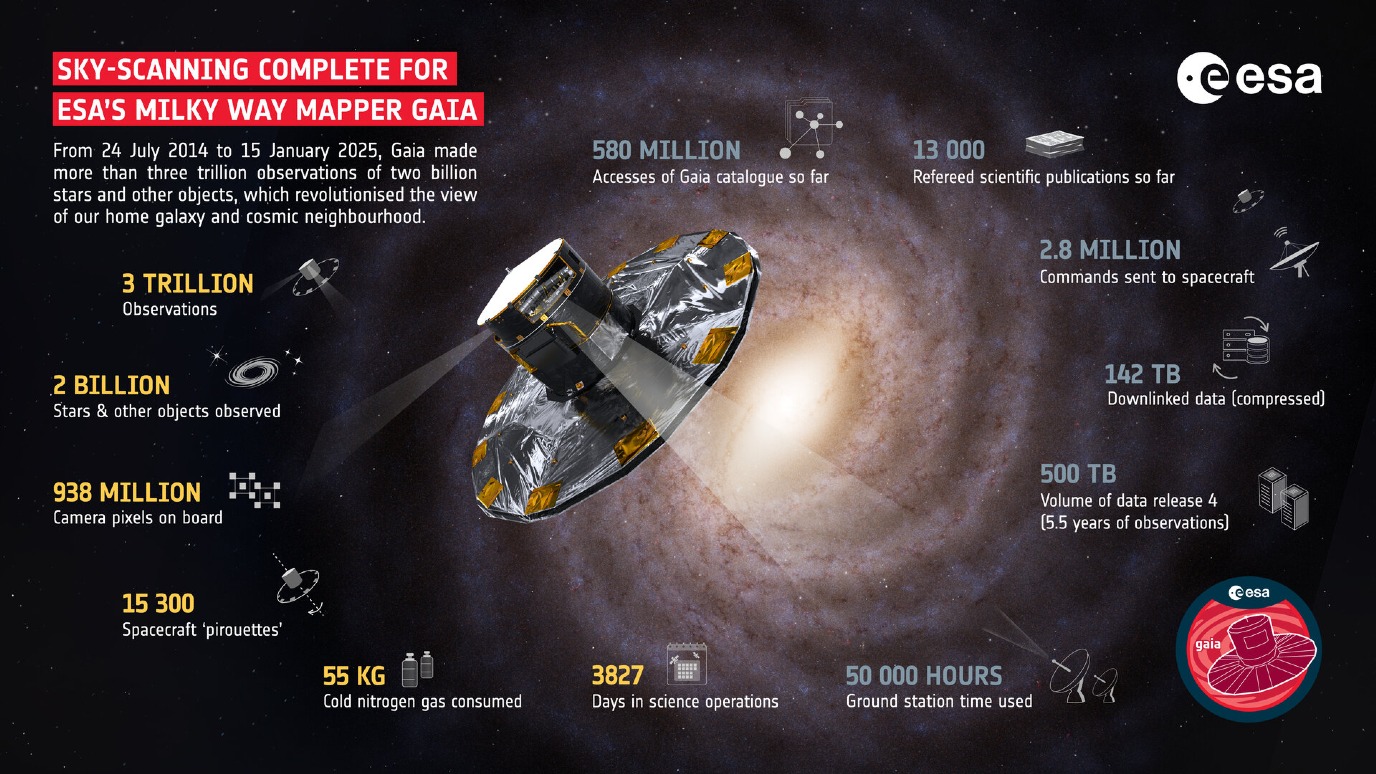The knowledge produced by 12 years of Gaia observations

The European space telescope Gaia, which had been mapping the Milky Way, stopped scanning the sky earlier this month. Since 2013, Gaia has made more than three trillion observations to measure the motion of about two billion stars. University of Groningen astronomer Amina Helmi was involved in designing the satellite and sharing the measurements with the scientific community. She also used them for her own research on the origin of the Milky Way.
‘I helped design the mission before it was approved by the European Space Agency in 2000,’ Helmi stated in 2016. After that, she remained involved when the satellite was being built. With two colleagues from the UG's Kapteyn Institute of Astronomy, Helmi was part of a group of scientists who validated Gaia's data: ‘We assessed whether the measurements were of sufficient quality.’
Helmi studies how our Milky Way came to be the shape it is today. Gaia’s data allowed her to create a map of the orbit that stars within the Milky Way follow. This enables her to determine where they come from and which stars originate from the same ‘stellar nursery’.
Stars form in groups from giant dust clouds and some of the oldest stars probably formed elsewhere, in other galaxies that merged with the Milky Way in the distant past. Among other things, Helmi's research group showed that such mergers are more common than previously thought. Helmi has already won many prizes with her research, including the prestigious Spinoza Prize in 2019.

More news
-
17 February 2026
The long search for new physics
-
10 February 2026
Why only a small number of planets are suitable for life
